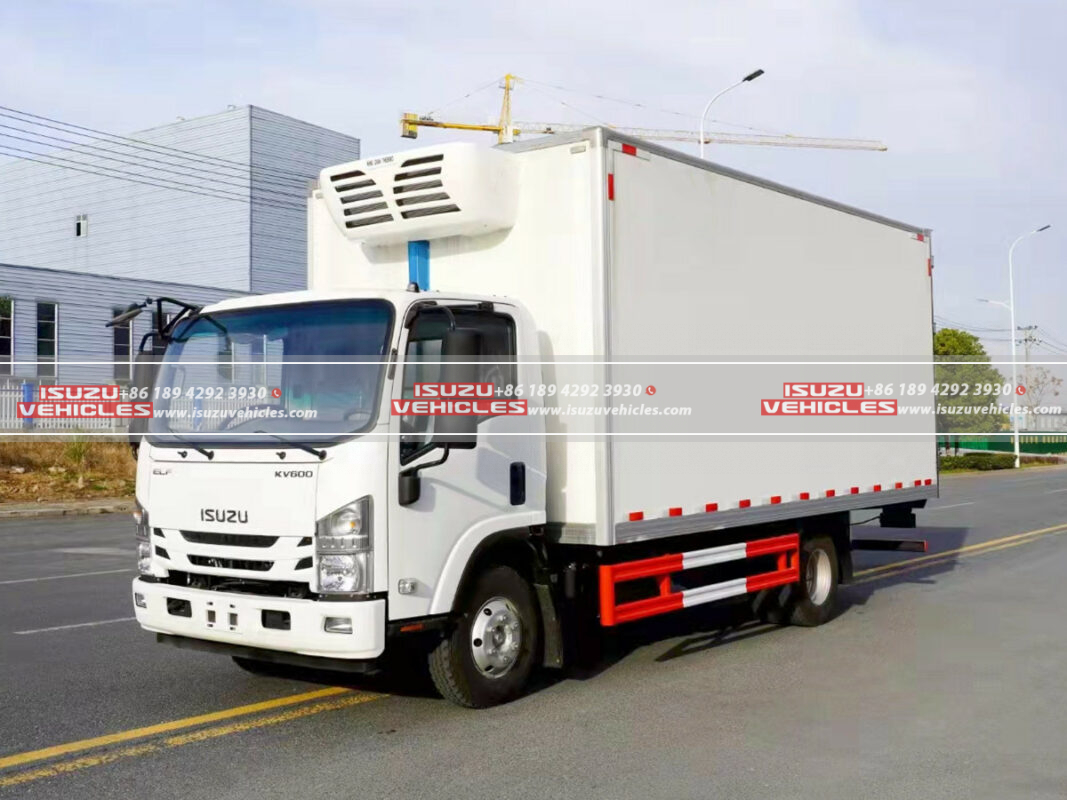Colombia’s agricultural and logistics sectors have gained a cutting-edge asset with the arrival of a new fleet of ISUZU refrigerated trucks, engineered to revolutionize the transport of perishable goods across the country’s diverse climates. This delivery, comprising over 100 units of ISUZU’s FVR and NPR Refrigerated models, addresses critical challenges in Colombia’s $9 billion perishable export industry, which has historically grappled with post-harvest losses exceeding 25% due to inadequate cold chain infrastructure. Designed to maintain precise temperatures from the Andean highlands to the tropical coast, these trucks will bolster Colombia’s position as a leading exporter of flowers, fruits, and dairy products while enhancing domestic food security.
1. Strategic Deployment Across Key Agricultural Corridors
The ISUZU refrigerated trucks are being strategically allocated to regions driving Colombia’s agro-industrial growth:
- Coffee Axis (Eje Cafetero): Transporting premium coffee beans and specialty cheeses at 2–4°C to preserve freshness
- Savannah of Bogotá: Ensuring cut flowers retain quality during the 3-day journey to Cartagena’s export terminals
- Amazonian Fruit Belt: Maintaining 12–14°C for exotic fruits like pitahaya and uchuva destined for U.S. and EU markets
These trucks will also support Colombia’s National Cold Chain Initiative, which aims to reduce post-harvest food waste by 40% by 2026. With 60% of Colombia’s rural roads classified as unpaved, the trucks’ terrain-ready design minimizes spoilage risks caused by delays or vibrations.
2. Engineering Excellence: Precision Cooling and Durability
Advanced Temperature Control Systems
The ISUZU refrigerated trucks feature multi-zone climate technology, allowing simultaneous transport of goods at different temperatures within a single unit. Powered by Carrier Vector™ 1950 systems, they achieve:
- ±0.5°C temperature stability even in external temperatures up to 48°C
- Rapid pulldown from 30°C to 4°C in under 90 minutes
- Remote monitoring via IoT sensors, alerting drivers to fluctuations in real time
Tropicalized Chassis and Powertrains
Built on ISUZU’s proven F-Series chassis, these trucks incorporate:
- Corrosion-resistant coatings to withstand humidity in Colombia’s Pacific coast
- 6HK1-TCS engines delivering 215 hp and 628 Nm torque for high-altitude performance in the Andes
- Reinforced suspensions capable of carrying 15-ton payloads on gravel roads without compromising cooling efficiency
This combination ensures uninterrupted cold chain integrity across Colombia’s 1,500-kilometer Bogotá-Buenaventura corridor, a route critical for export-bound perishables.
3. Economic and Environmental Impact
The introduction of ISUZU refrigerated trucks is projected to generate significant economic benefits:
- Export Growth: Reduced spoilage could increase flower and fruit export revenues by $300 million annually (ProColombia estimates)
- Small Farmer Inclusion: Mobile cold storage hubs will connect 12,000+ small-scale producers to international markets
- Carbon Footprint Reduction: Euro V-compliant engines and solar-powered refrigeration units cut CO2 emissions by 18% per trip
Major cooperatives like Asocolflores have already integrated these trucks into their fleets, reporting a 30% decrease in rejected flower shipments due to temperature damage during trials.
4. Complementing Colombia’s Broader ISUZU Fleet
The refrigerated models join a growing roster of ISUZU vehicles strengthening Colombia’s logistics network. The rugged ISUZU cargo truck dominates heavy freight routes between Medellín and Barranquilla, while the agile ISUZU van truck services last-mile delivery networks in urban centers like Cali and Bucaramanga. Together, this diversified fleet ensures seamless cold chain integration—from farm cooling stations to supermarket freezers.
With plans to expand charging infrastructure for electric refrigerated variants by 2025, ISUZU continues to align its Colombian operations with global sustainability trends. As the nation’s agricultural output surges, these ISUZU refrigerated trucks stand as both a technological milestone and a catalyst for equitable economic growth, ensuring Colombia’s perishables reach global markets as fresh as the day they were harvested.
